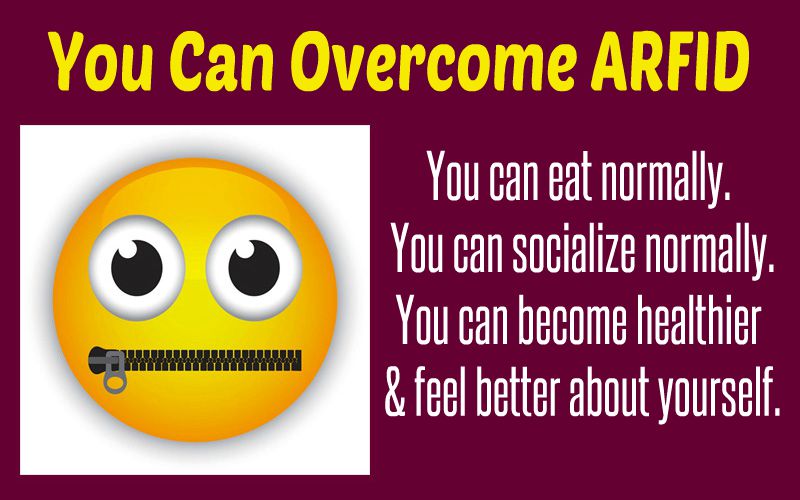What is the social impact of ARFID? Avoidant restrictive food intake disorder (formerly known as selective eating disorder) virtually always has significant social consequences for affected people. These effects can have direct consequences on physical and especially psychoemotional health, leading to a downward spiral of life quality all due to the social ramifications of the eating disorder.
I have written much about the consequences of ARFID and will take this opportunity to focus on the social ramifications. While anatomical and psychological consequences do affect some patients, almost every person with ARFID will suffer considerable social challenges. The more severe their case profile is, the worse they will suffer in this regard. This is a truth that I surely know well, based on my almost 40 years suffering from extreme selective eating habits.
This post focuses attention on the social effects of ARFID. We will explore how avoidant restrictive food intake disorder actually shapes a person’s social development and how it limits people from enjoying normal socialization with family, friends and colleagues.
Social Impact of ARFID in Youth
Children are not socially savvy, but they learn quickly. Children also feel their differences from peers very deeply, especially once they learn to communicate and share conversation regarding their lives. Children who suffer from significant ARFID will almost universally suffer socially.
Children will notice that they are different. They will often feel bad about themselves because of their strange eating habits. If other children point out the differences, they will feel even worse and might even face social teasing or bullying due to their ARFID.
Children might avoid social situations involving food and eating. This can include parties, special occasions and almost any social setting. Results include feelings of loneliness, rejection and isolation.
Since school involves social eating, many children suffer academically due to stresses and anxiety related to lunch time or snack time. These effects can cause tremendous damage to a child’s life trajectory.
Children might avoid extra-curricular activities where eating is a regular part of the club, organization, team or other entity.
Many children with ARFID tend to become loners and spend inordinate time by themselves.

Social Impact of ARFID in Adults
Children with ARFID might grow up to become adults with avoidant restrictive food intake disorder. While some children grow out of their selective eating habits to one degree or another, many do not. Some adults are actually worse than they were as children when it comes to eating… Let’s explore some social consequences in adults due to ARFID:
Adults will likely continue many of their social habits from childhood. This might include seeking to avoid social eating, avoiding group participation in organizations, spending much of their time alone and suffering continued loneliness and isolation.
Adults might be limited in their career trajectory due to awkward or uncomfortable socialization. This is especially true since many people with ARFID have never learned to socialize comfortably due to activity avoidance to spare themselves social eating discomfort and anxiety.
Adults might have difficulty dating or finding a suitable mate. This can dramatically affect quality of life and negatively impact life trajectory. Many people with ARFID have trouble relating intimately, since they are often misunderstood and may even be considered a social burden by people who do eat “normally”.
Adults with ARFID who raise families are often extreme challenged once again when they must deal with food issues in their children and help their children to live normally, even when they themselves do not socialize normally…
Adults with ARFID will often limit themselves greatly in terms of travel opportunities.
Selective eating adults might suffer very greatly if and when they are placed in a hospital, hospice or long-term care setting where they have limited ability to eat what they normally would. This stress can lead to further injury, chronic mental and physical health issues and even premature death.
ARFID Social Impact Experiences
I knew I was different in my eating habits by the age of 2. I have no memories before that… However, even from such a tender age, I felt strange about myself and slightly isolated from others due to my peculiar food-related imperatives. I simply tolerated the few foods that I would eat and hated everything else…
When I turned 4 and stopped eating all meat, fish and poultry, I was further isolated and began to notice social ramifications even more, since I was now socializing with other children more often and at a deeper level. By 4, I really knew that I was different and did not like the way it felt. I already began to avoid social eating settings when I could and suffered some degree of anxiety when my eating options were limited.
I was very fortunate as a child, since my family did not make my life hell because of my eating difficulties. Likewise, I made many friends who stuck with me through all my weirdness and allowed me the ability to grow up quite normally.
As a result of my support, I continued my extreme selective eating into adulthood and once again always felt different (not in a good way) and somewhat socially anxious. I tended to simply not eat (much or at all) when going out in groups and this made for some awkward dinner dates for sure!
I actually ate fewer and fewer foods as I got older until I was stuck with only a small number of choices repeated day after day. Speaking of socially limiting… I am completely empathetic to what you are now going through, even if you are not fully conscious of its consequences yet.
I share more of My ARFID Story on this website and detail the complete memoir of my ARFID experience as well as my acclaimed self-help program in my humorous book My Food Fear. I am sure that you will enjoy it!

Leave a Reply
You must be logged in to post a comment.